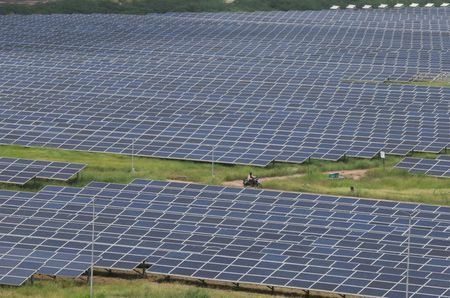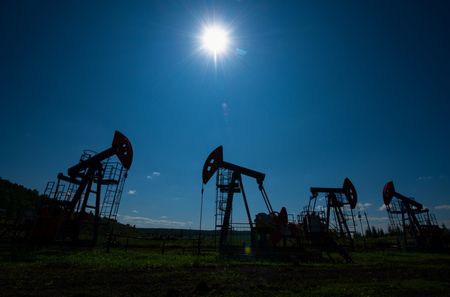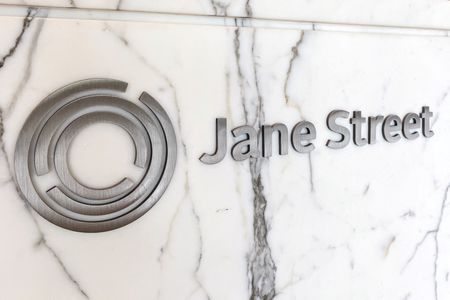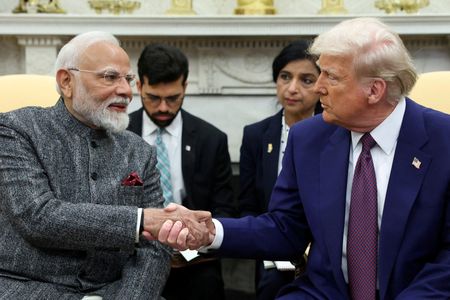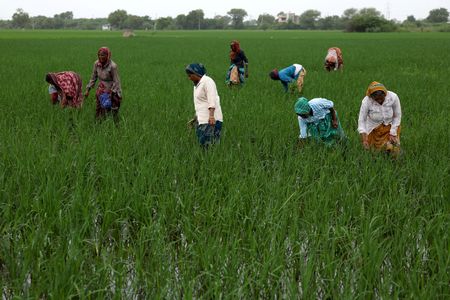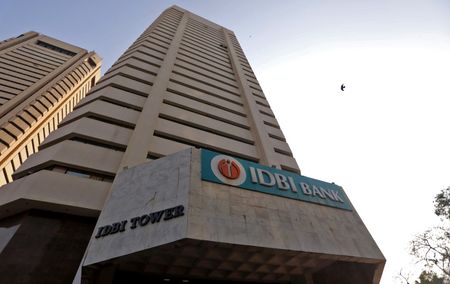By Sudarshan Varadhan
SINGAPORE (Reuters) -India’s stranded renewable power capacity – projects awarded but unable to come online – more than doubled over nine months, due to unfinished transmission lines, and legal and regulatory delays, letters from an industry group to the government showed.
Renewable projects that won tenders to generate power but are yet to sign power purchase agreements with buyers have surged to over 50 gigawatts (GW), India’s Sustainable Projects Developers Association (SPDA) said in a letter to the Ministry of New and Renewable Energy on June 27.
That compared with stranded projects of over 20 GW, another letter sent by the SPDA on October 4 showed. Both letters were reviewed by Reuters.
The stranded solar and wind capacity without buyers of over 50 GW reported by the SPDA is about quarter the size of India’s current installed renewable capacity of 184.6 GW.
“India’s energy transition is not just about building solar and wind capacity, it is also about ensuring that clean power reaches in a most optimum cost and timely manner,” the SPDA said in the June 27 letter to the renewable energy ministry.
The ministry did not immediately respond to a request seeking comment.
India has been ramping up renewables as it pushes to more than double its non-fossil fuel power capacity to 500 GW by 2030. A record 22 GW of solar and wind capacity came online in the six months ended June, government data showed.
However, tendered projects cumulatively worth billions of dollars awarded to companies including JSW, NTPC, Adani Green, ACME Solar, Renew and Sembcorp are stranded, two industry officials familiar with the matter said.
The companies did not respond to Reuters requests seeking comment.
The SPDA includes leaders of some of India’s largest renewable energy producers Renew Power, ACME Group and Avaada Group as members of its core committee.
Delays in critical transmission infrastructure – especially in sun-drenched states such as Rajasthan and Gujarat – have forced many solar plants to miss commissioning deadlines, risking financial penalties and potential loss of government incentives, the SPDA said in the June letter.
The SPDA urged the government in the same letter to recognise delays in approvals and transmission construction as force majeure events to help protect developers from financial penalties, and to expedite regulatory permissions.
Renewable projects are also stuck due to prolonged legal disputes over land and environmental permissions, it said, adding that several developers have paused operations over unresolved court cases.
(Reporting by Sudarshan VaradhanEditing by Frances Kerry)

